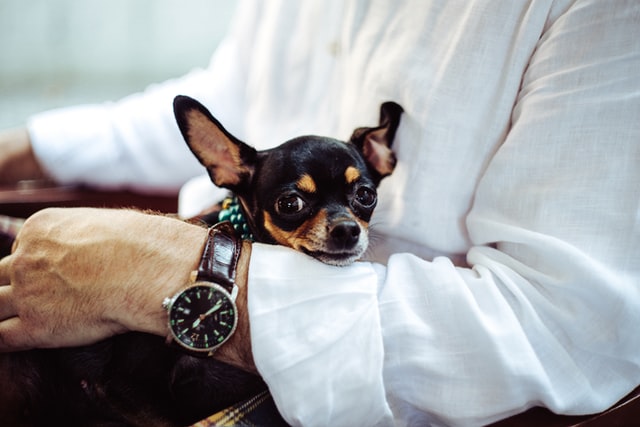
According to the 2011 Canada’s Pet Wellness Report prepared by the Canadian Veterinary Medical Association, approximately 35% of Canadian households have a dog, while 38% have a cat. If other less traditional types of pets – such as guinea pigs, rabbits, birds, fish, hedgehogs, and reptiles – were to be accounted for, the number of Canadian families who enjoy the company of their pets would be even more significant.
What happens to these lovable household members when there is a breakdown in a marriage or a relationship? Who gets to keep the family pet? How is that decided? If not you, then how often, if ever, can you spend time with your pet now that you and your ex live in two different houses? The courts have traditionally similarly treated pets as they would treat any other pieces of family property, such as furniture and other household contents. Not everyone agrees with this approach. Arguably, pets are inherently different from regular belongings; they are living, breathing beings who have agencies of their own, and often share emotional bonds with their humans.
There are only a handful of cases in Canada – and even much less in Ontario – that address the issue custody of pets in separation.
Can parties claim “custody” of pets?
The leading authority in this realm is Warnica v. Gering. In this case, Mr. Warnica brought a court application and sought joint “custody” of the couple’s dog Tuxedo, claiming that his partner, Ms. Gering, had got the dog as a gift for him about eight years ago for $100 from a local pound. He also sought for temporary possession (which, the author of this article presumes, was equivalent to parenting time) on a week-on/week-off basis. Ms. Gering asked for sole “custody” of Tuxedo. She denied that Tuxedo was a gift to Mr. Warnica, but said that the dog was purchased as a companion for herself as she lived alone.
In his decision, although acknowledging that pets have sentimental values for many people, Justice Timms wrote that he “[does] not believe that any court should be in the business of making custody orders for pets, disguised or otherwise’ because pets are not children. He wrote that an issue ‘should not occupy more court resources than it merits,’ and reprimanded the applicant for spending an unreasonable amount of money on this issue. The court was not amused with how this case was on its path to a full-blown trial, with the only measurable problem being custody of a dog. The court dismissed Mr. Warnica’s application for “custody” of Tuxedo, determining that his involvement with the dog was dependent on the relationship with Ms. Gering. The evidence available supported the position that Tuxedo was bought to serve as her companion, and was, therefore, her property. Whether Mr. Warnica spent money on or time with Tuxedo was irrelevant in the court’s eyes.
This decision was affirmed in the Ontario Court of Appeal, where the appellate judges found that the lower court did not err in dismissing the applicant’s case because it was a waste of the court’s time. But more importantly, they confirmed that “the claim would likely fail both on jurisdiction and the merits,” indicating that “custody” of a pet is not a viable concept in the family courts and they do not have jurisdiction other than the decision of who is the rightful owner of the animal.
My partner bought the pet, but I really love and bonded with the animal while we lived together. I thought there was an understanding that the pet was ‘ours.’ How is ownership determined?
In the case of King v. Mann, the couple had a disagreement on the ownership of numerous household and personal items, including a safe, the engagement ring, the washer and dryer, and most importantly, Copper, a Coca Shih Tzu puppy. The respondent was the party that had initially suggested getting a dog; at the time, the applicant stated that he did not want a dog as he was allergic. The respondent proceeded to get a dog nonetheless because she thought ‘it would be good for the applicant’s PTSD’ and because the breed was known to be hypoallergenic. The applicant said that when the respondent first brought the dog home, she said, “I bought it for you” or “look what I got you,” insinuating that the dog was really for him. The applicant noted that “there is no doubt [he] did not want a dog, but it was thrust upon [him], and within minutes [his] heart changed, and [he] fell in love.”
In this case, the applicant was charged with a breach of probational order that was a part of a sentence imposed upon him after being found guilty of assaulting the respondent. Since he was charged with Failure to Comply, the applicant had not seen Copper since then. He claimed that the respondent bought Copper as a gift to him; the respondent denied this and indicated that she had no intention of sharing the dog with the applicant or letting him go. They agreed that both of them took good care of and loved Copper.
The decision once again stated that “disputes over dogs are to be approached in the same manner as with any other personal property. Namely, the relevant question is ownership.” Because there was no dispute over the fact that the respondent bought the dog, the only relevant question was whether the applicant could establish that the ownership of the dog had changed during the relationship.
This is an inherently different question from whether there is a relationship between the party asking for “access” and the pet; treating the dog generally as the family pet does not affect a change in ownership.
In addressing what the respondent allegedly said on the day the dog first joined the family and whether that established the applicant’s ownership of Copper, Justice Minnema characterized this argument as ‘facetious.’ The court equated this situation to one “when one partner cooking porridge for himself says to the other who hates porridge “look what I made you.”
Even if Copper was initially offered as a gift to the applicant, the court found that he never accepted the gift. Justice Minnema wrote that “the applicant’s accepting the dog into his life and heart does not equate to his communicating acceptance of the alleged gift.” The fact that the applicant was not happy, coupled with the fact that there was never an explicit acknowledgement of the gift such as ‘thank you so much,’ ‘just what I wanted,’ or even ‘I accept your gift’ meant that the applicant rejected the dog.
The court also noted that the total time for which the applicant and Copper lived together was 5 months before the applicant left the house after being charged with domestic assault. From that point, the respondent had exclusive control over whether and for how long the applicant saw Copper; she conclusively withdrew consent of Copper spending time with the applicant when he was charged with Failure to Comply. The court concluded that Copper was not a gift to the applicant, nor did the owner of the dog change throughout the relationship. His claim regarding the dog was dismissed.
The bottom line is, you cannot have ‘access’ to a pet if determined that you do not have proprietary or ownership interest in the animal. Similar to how you cannot claim the right to use your ex’s car once a week or borrow his or her china every other weekend.
Can I ask my ex to cover some of the expenses required for the pet after separation?
In the case of Boschee v. Duncan, the couple had a common-law relationship of six years. The applicant asked for a monthly amount of $200 from the respondent characterized as “pet support” to compensate for the cost of and time taken to care for the respondent’s St. Bernard. The respondent was not in a position to take the dog back because his living arrangements could not accommodate a dog of that size. The respondent said that he would pay the applicant $25 per month instead. The court ruled that $200 is a reasonable sum to ask for a big dog, and ordered for ongoing and retroactive payments.
What can we infer from this case? If there is an acknowledgment or determination that a party has sole or partial ownership of a pet, he or she will be held responsible for the costs incurred by the said pet. Note, however, that this is a case from Alberta, not Ontario.
Closing Remarks on Custody of Pets in Separation
There is a shortage of case law on pets in the context of family law, and for a good reason: the courts are extremely backlogged with hundreds of new cases filed every month across the province. While most, if not all, courts are respectful of the fact that our furry friends are philosophically different from a chaise lounge or an antique tea set, pets are some of the lesser concerns in comparison to other issues such as domestic violence, child protection, and financial support. Although we hold our pets in a special place in our hearts, the law perceives them as objects and will make decisions of ‘custody’ or ‘support’ based on the laws of property.
So, is it wise to spend your day in court debating about whether the dog you bought together should travel between you and your ex’s house on a 50/50 basis? Maybe, maybe not. Remember that there are alternative methods of dispute resolution before engaging in full-fledged litigation, especially when there is potential that the court may not view the issues as entirely meritorious.
The above information is NOT legal advice of any kind, and you should be sure to speak to a qualified family law lawyer about your specific situation regarding the custody of pets in separation. For more information, call us at 905-273-4588 or email us at contact@kainfamilylaw.com to book a free 30-minute consultation with one of our experienced family law lawyers at Kain & Ball Family Law.




I just signed up to your blogs rss feed. Will you post more on this subject?
Aw, this was a really nice post. In idea I would like to put in writing like this additionally – taking time and actual effort to make a very good article but what can I say I procrastinate alot and by no means seem to get something done.
You are not the average blog writer, man. You certainly have something important to add to the World Wide Web. Such a special blog. I will come back again for more.
Hey, My partner and i really like the actual internet-site!! That is certainly a great page. My family and i look forward to browsing a lot more exciting tips that you will be publishing within the forthcoming. We have discovered a great deal from this. Thx. -Hong Takes
Of course, what a great site and informative posts, I will add backlink bookmark this site? Regards, Reader.
I’m having a weird issue I cant seem to be able to subscribe your feed, I’m using google reader by the way.
ive begun to visit this cool site a couple of times now and i have to tell you that i find it quite nice actually. itll be nice to read more in the future! =p
I admire your work , thankyou for all the interesting posts .
I just couldnt leave your website before letting you know that I really enjoyed the useful information you offer to your visitors Will be back soon to check up on new posts
ive visited this cool site a few times now and i have to tell you that i find it quite great actually. keep it up!
My friend and I were just arguing about the topic you referred to in your blog post and apparently, I win the discussion! Thank you for clearing it out.
Hi. I needed to drop you a quick note to impart my thanks. I’ve been watching your webpage for a month or so and have picked up a heap of sound information as well as enjoyed the way you’ve structured your article. I am setting about to run my own webpage however I think its too general and I would like to focus more on smaller topics.
very nice post, i definitely love this website, carry on it
I do not even know how I ended up here, but I thought this post was great. I do not know who you are but definitely you are going to a famous blogger if you aren’t already 😉 Cheers!
Helpful info. Lucky me I discovered your web site accidentally, and I am surprised why this twist of fate did not happened in advance! I bookmarked it.
Oh my goodness! an incredible article dude. Thank you Nonetheless I’m experiencing challenge with ur rss . Don?t know why Unable to subscribe to it. Is there anyone getting identical rss downside? Anyone who is aware of kindly respond. Thnkx
I have been surfing online more than three hours today, yet I never found any interesting article like yours. It is pretty worth enough for me. In my view, if all webmasters and bloggers made good content as you did, the internet will be a lot more useful than ever before.
I like the helpful info you provide in your articles. I will bookmark your weblog and check again here frequently. I’m quite sure I?ll learn many new stuff right here! Good luck for the next!
You made some respectable factors there. I appeared on the web for the issue and found most individuals will go together with with your website.
Thanks , I have just been looking for info about this topic for ages and yours is the best I’ve discovered till now. But, what about the conclusion? Are you sure about the source?